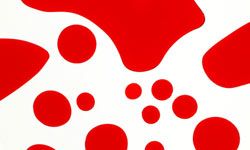Ultrafiltration is a medical therapy that removes excess salt and water from the bodies of patients who have a condition called fluid overload. In this procedure, which uses a small, portable machine, the patient's blood is passed through a filter that removes the excess fluid from the blood. The filtered blood -- free of the excess fluid -- is then returned to the patient.
With ultrafiltration, the rate of fluid removal is adjustable, so doctors can gradually remove the excess fluid without upsetting blood pressure, heart rate or electrolyte balance (chemical substances like sodium, potassium and chloride). Up to 500 milliliters, or 1.1 pound, of fluid can be safely removed per hour. The average removal rate is 250 milliliters, or about a half pound, an hour, and treatment usually lasts about 24 hours. In general, people receiving ultrafiltration therapy stay in the hospital for three to four days.
Advertisement
This therapy can be used in combination with or as an alternative to diuretics (drugs that help rid the body of excess water), inotropic drugs (medicines that stimulate the heart to expel more blood with each beat) or vasodilator drugs (medicines that widen blood vessels) to achieve the target fluid removal goal for the patient. And, because it removes sodium and resets body fluid levels, ultrafiltration may also improve the effectiveness of oral diuretics ("water pills") that patients take on an ongoing basis.
A clinical study called "Ultrafiltration vs Intravenous Diuretics for Patients Hospitalized for Acute Decompensated Congestive Heart Failure" (UNLOAD) compared the safety and efficacy of ultrafiltration treatment with diuretics given intravenously (that is, with a needle into the bloodstream) to treat fluid overload in heart failure patients. Results of the UNLOAD study showed that ultrafiltration not only removed more fluid than intravenous diuretics, but far fewer patients who received ultrafiltration had to return to the hospital, emergency room or clinic for worsening heart failure.
Compared to traditional dialysis equipment, the device used in ultrafiltration therapy needs only a small amount of blood (33 milliliters, or 2.5 tablespoons) from one of the patient's peripheral veins (like one in an arm). It is highly automated and can be operated by nonspecialized health care professionals in diverse locations in and outside the hospital.
In contrast, dialysis is used on patients suffering from kidney (renal) failure. Dialysis requires large amounts of blood (200-300 milliliters -- 20 tablespoons or more) and central venous access (that is, use of one of the deeper veins of the chest, neck or groin that leads directly to the heart). Plus, dialysis equipment must be operated by specialized dialysis health care professionals in intensive care settings in a hospital or clinic.
Advertisement
